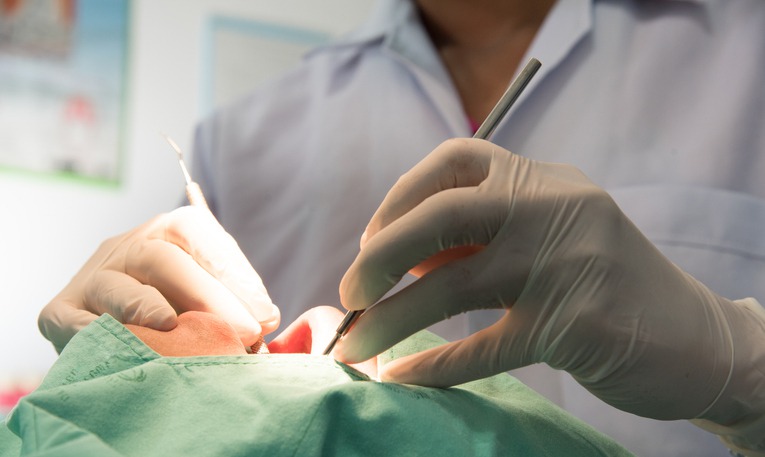
How Is Oral Surgery Recovery Managed?
Recovering from oral surgery involves careful management and following specific instructions to heal correctly and comfortably. After surgery, your body needs rest and adequate attention to avoid complications. Knowing proper recovery methods helps reduce pain, swelling, and accelerates the healing process, making your experience smoother and less stressful.
What Are the Steps Involved in Managing Recovery Post-Oral Surgery?
Immediate Steps After Oral Surgery
Right after surgery, dentists will normally place gauze over the surgical area. Biting down on gauze helps prevent bleeding by encouraging clot formation. Be sure to follow their guidelines about how long you need to keep the gauze in place, typically between half an hour to forty-five minutes.
Applying an ice pack over your cheek is usually recommended to help minimize swelling during the first couple of hours. Strictly following these immediate measures is vital to successful recovery, reducing your risk of complications or prolonged pain post-surgery.
Taking Medication as Directed
Your dentist will prescribe medications to help manage any discomfort and promote healing. Medications include antibiotics to prevent infection and pain relievers to handle discomfort. It’s necessary to take these medications exactly as guided by your dentist, without skipping doses, unless instructed otherwise.
Be sure to disclose to your dentist any existing medications you are currently taking to avoid harmful interactions. Always let your dentist know if you feel an unusual reaction or side effect from medication so that it can be promptly addressed and corrected.
What Dietary Guidelines Should You Follow?
Foods to Choose During Recovery
-
Soft foods like yogurt, mashed potatoes, scrambled eggs, or smoothies can provide nutrition without irritating your surgical site.
-
Soups at warm, comfortable temperatures are beneficial, supplying nutrients without needing much chewing or effort.
-
Drink plenty of water to stay healthy and hydrated, as dehydration could slow down your healing.
Foods to Avoid After Oral Surgery
-
Crunchy, sticky, or hard foods like chips or candies could disrupt the healing area.
-
Hot foods or liquids like coffee or soup at high temperatures can irritate stitches or healing tissues.
-
Avoid alcohol and tobacco, which can slow down your healing and potentially result in infection.
Effective Oral Hygiene Routine During Recovery
Keeping your mouth clean post-surgery significantly reduces infection risks. Gently brushing your teeth, especially away from the surgical site, helps maintain good oral hygiene during your recovery. Be gentle and cautious around the surgical area, carefully avoiding irritation or removing blood clots.
Most dentists recommend rinsing your mouth with warm salt water several times daily, starting the second day post-surgery. This simple practice helps reduce bacteria and maintain cleanliness within your oral cavity.
The Recommended Recovery Period After Oral Surgery
The recovery duration might vary depending on the complexity of your procedure and how well your body heals naturally. For minor oral surgeries such as wisdom tooth removal, recovery usually takes less than two weeks. However, major surgeries involving bone grafts or jaw reconstructions usually take a few weeks to a couple of months.
Carefully following your dentist’s advice helps speed your healing by minimizing complications. Always keep track of improvement, reporting concerns immediately to ensure proper care throughout your recovery journey.
Monitoring Possible Complications and When to Seek Help
Recognizing possible issues is essential during your healing journey post-oral surgery. Common signs of complications include increased swelling beyond a couple of days, severe bleeding, extreme discomfort beyond the first week, and fever indicating possible infection.
If you experience these symptoms, immediately seek help from dentists trained to effectively manage such situations. Choose providers with experience in treating emergency dentistry patients for quick and efficient solutions to unexpected recovery challenges.
Keeping Follow-up Appointments
Your dentist will schedule a follow-up appointment to monitor healing post-surgery. Even if you feel better, attending scheduled follow-ups is required to confirm proper healing. Your dentist can identify and correct minor issues proactively, preventing potential serious problems from occurring later.
Always communicate with your dentist during follow-ups about your pain levels, swelling experiences, or any other concerns. Clear communication assists dental professionals in better guiding your oral health recovery and addressing specific personal needs or challenges.
Family Dentistry and Accelerating Oral Surgery Recovery
Working with a dedicated family dentistry practice provides personalized support through your recovery process. Practices specializing in family dentistry in Duluth, GA, for example, offer tailored advice that matches your and your family’s unique oral health needs. Choosing professional and supportive establishments offers peace of mind and ensures effective management throughout the recovery journey.
Consistently relying on family dental professionals encourages open communications about healing challenges, pain management, or other vital oral health concerns. Establishing a lasting relationship contributes to faster healing and smoother recovery after oral surgeries.
Physical Activities and Relaxation Suggestions During Recovery
Physical activities should be limited post-oral surgery, particularly in the first few days. Overexerting yourself increases pressure within your mouth and potentially causes increased bleeding and swelling. Resting sufficiently and avoiding strenuous exercises significantly facilitate healing.
Consider relaxation activities to keep entertained but still at ease while minimizing your physical exertion. Reading books, watching favorite shows or movies, or listening to calming music will comfortably occupy your time without jeopardizing your recovery.
Enhancing Your Smile After Recovery
After your healing period, improving the appearance of your smile through dental cosmetic services might interest you. You can click for details for providers who typically offer teeth whitening, veneers, and other treatments enhancing your appearance post-recovery. Service providers give consultations, clearly explain available treatments, and guide you toward options best suited for your oral health intentions and goals.
Once fully healed, brightening and polishing your teeth serve as rewarding complements to your oral surgery experience. Dental cosmetic options assist in improving confidence, showing off your healthy, rejuvenated smile.
Final Thoughts
Managing recovery after oral surgery involves carefully following professional advice, consistently maintaining good oral cleanliness, adhering to dietary restrictions, and recognizing potential complications. Working closely with trusted family dentists helps facilitate quicker healing, comforting guidance, and reassurance. Following recovery, dental cosmetic treatments enhance confident smiles and celebrate remarkable oral health achievements.


